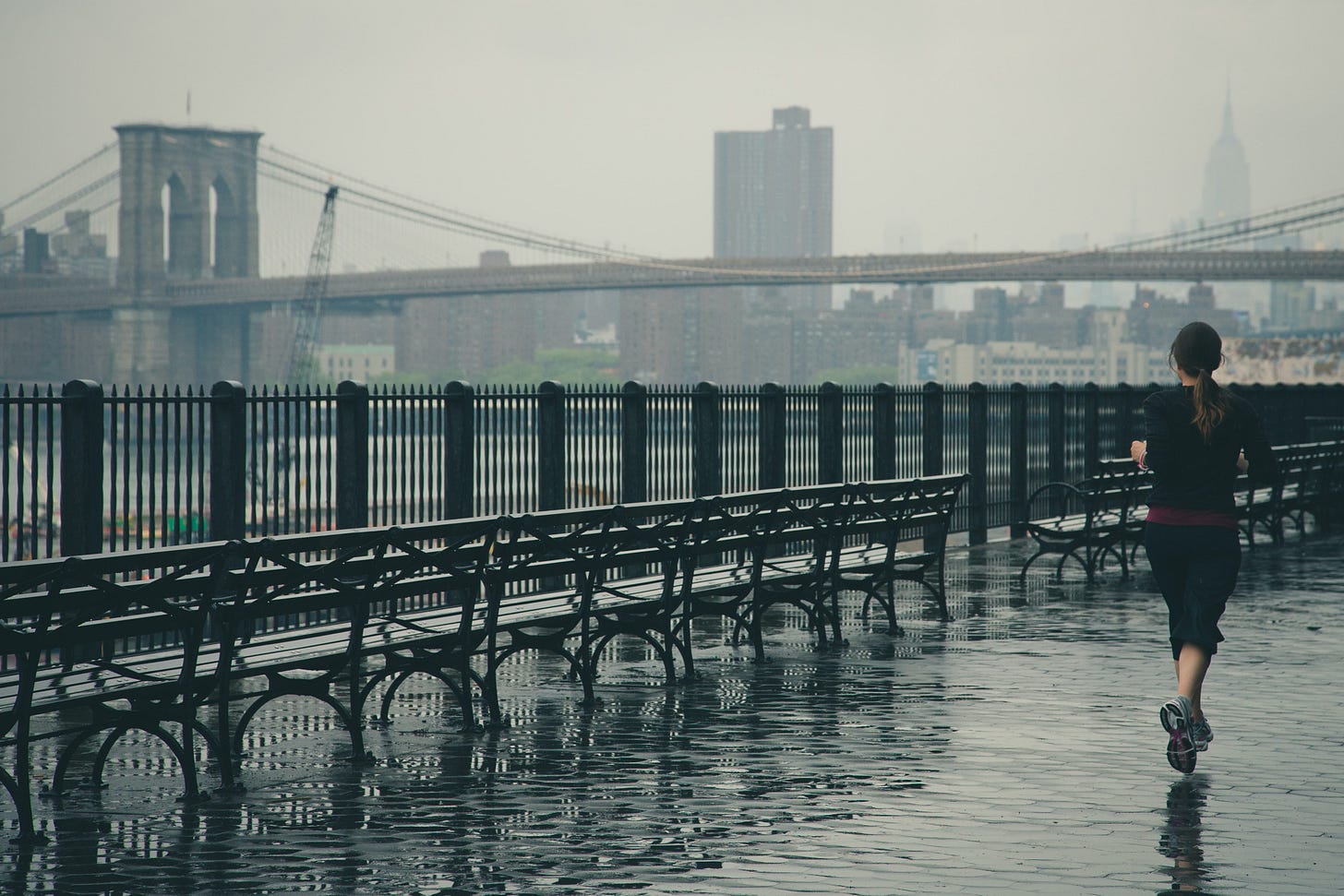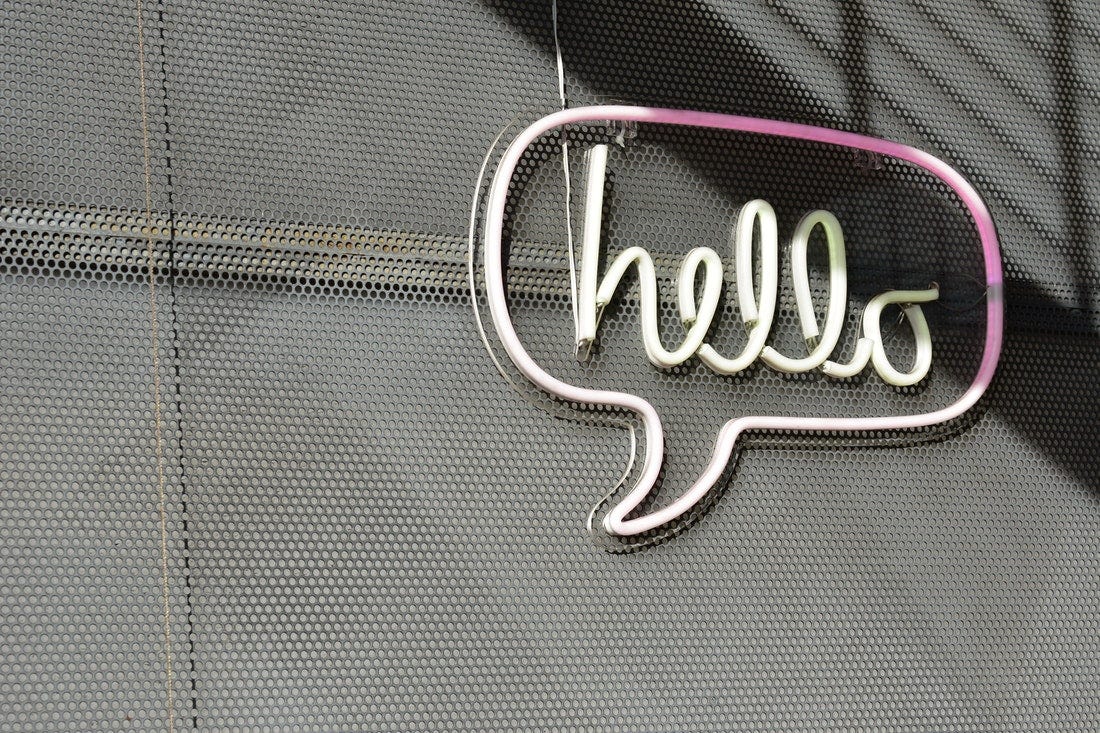#5 WHO GETS THE MIC
How we're trying to represent all experiences + more updates on our latest goings-on.
Welcome to Visible Platform's newsletter, The Platform.
This newsletter was created as we thought it was important to keep you updated on our journey and share resources to help you recognise, cope with and heal from incidents of public harassment.
If you like what we’re doing, subscribe and share with your friends 📣
January Reflections:
Celebrating the beginning of 2022 also means celebrating Visible’s second birthday! From the beginning, our mission has been clear: to bring an end to harassment on public transport.
Visible Platform came about entirely by accident really. We were tired of feeling like nothing was being done to stop the harassment we were regularly experiencing. After one raging phone call between fed up best friends, we decided if no one else was going to do something about it - we would!
We were two white able-bodied women who had experienced a lot of harassment on the London Underground. When we did user research, the women we spoke to, were also predominantly white able-bodied women who had been harassed on the London Underground. So the platform we first built responded to this very specific experience.
We knew this didn’t come close to representing all the experiences of women in London, let alone the rest of the UK. As we grew our team, we expanded our reporting form to include more regions, and provided an option to report even if your city wasn’t on the dropdown list.
We also to send out a demographic survey and make sure our data is disaggregated, not only in terms of gender but also race, religion and sexuality, because we know there are more experiences out that than just ours.
We consider ourselves intersectional feminists. To us this doesn’t mean just acknowledging that, “this effects different women differently”. It means that we recognise that we work within systems and structures that have often been established on the back of institutional inequality, and we are committed to challenging these together.
As we are continuing to grow, we want to call out and be open about our blindspots. We are still a team lacking in diversity, and we want this to change in 2022. To build a platform that represents a range of experiences, we need diverse women in the room to share their voices.
So here is the call to action: We are calling on anyone who feels underrepresented in the conversation about women’s safety on public transport, to come join us as advisors and allies. We want to hear your voices, so we can design something that works for you - not something you have to work around. Since the beginning we’ve preached that lived experience should not be diminished, that women’s voices deserve to be heard not because they are “experts on transport” or “experts in gender” but rather because they are the ones who are out there, living with the impact, trying to get on with their day in a world not often designed to accommodate them.
So if you’re ready to be disruptive and unapologetic in the name of getting shit done, please, get in touch! 🤜 🤛
Visible Platform
Platform Updates:
Coming soon: The Database 📓
We love research, so we’re putting all of ours together in one place that anyone can access. All papers shared on our database are either publicly available or the authors have consented to their use by Visible Platform. We’re covering a whole range of fields, from criminology, law and gender studies, to geography and psychology. If you have conducted research in a relevant or related area and would like to share it with the world, give us a shout! 📩
London TravelWatch has published its Personal Safety report for people travelling in London, with a special mention of the work Visible Platform are doing and a call to back our cause. Big thanks to Saphia and her team for highlighting our work 🙌
Authorities should ensure that other recommendations are followed to build trust amongst people that reporting is worthwhile, and to make sure people trust their report will be taken seriously, even if not a crime, and that their stories and experiences are valued and useful. Organisations such as Visible Platform are already working to address this gap, and TfL and other authorities should continue to work with them to develop better sources of data and insight.
Women just don’t deserve to die
“She was just going for a run”
”She was just walking home”
”She was just meeting a friend”
We’ve heard these sentences many times, often in response to a tragic accident of male violence against women, and we think it’s time we unpack them. This idea that a woman can be attacked when she is just trying to go about her normal day can be an effective way to show that male violence has no boundaries and can strike at any time.
However, there is a problematic undertone: The more innocent you are, the more innocent your actions are deemed to be, the more you don’t deserve to die.
Call us paranoid, but we can’t see the below headlines garnering the same feelings of sympathy:
“She was just on her way to get an abortion”
”She was just meeting a married man”
”She was just working in the sex industry”
And yet we’re here to tell you that you could get an abortion, have an affair, be a sex worker, and you know what? You still don’t deserve to die. Because male violence against women is wrong all the time.
In our latest blog post, The Ideal Victim, we explore how preconceptions of innocence and trustworthiness leads to unequal treatment in our legal system, and also means society disproportionally favours well-off white victims whilst failing people of colour.
As a society, we need to stop putting women on a sliding scale of victimhood. Let’s stay alert to phrases that seem harmless but continue to perpetuate dangerous narratives. 🙅♀️
The Platform Recommends:
💥 Challenge of the month: The next time you use the phrase “Violence against women”, put the word “Male” in front of it. If this makes you feel uncomfortable, ask yourself why you can acknowledge that women are being killed, but you won’t acknowledge that men are doing the killing. No, not all men are violent, but all violence against women in committed by men. It is gendered in both the victim and the perpetrator, let's not forget that.
📝 Action of the month: #ReclaimTheseStreets are raising funds to help them defend our right to protect and reclaim these streets. Find out more, and pledge if you can, here.
👀 Check this out: XYX Lab is a team of experienced design researchers exploring gender-sensitive design practices and theory.
“Our work operates at the intersection of gender, identity, urban space and advocacy. Through our research, we bring together planners, policy makers, local government and stakeholders to make tangible the experiences of underrepresented communities in urban space and planning.”
Visible Platform is all about creating a community, so if you want to talk to us please email us on: info@visibleplatform.org
You can also message us on social media:
Instagram | Twitter | LinkedIn | Facebook
P.S. You’re receiving this because you’ve previously expressed interest in our work. But if you’d rather not hear these updates, you can unsubscribe at any time!









